Windows 10 + MySQL 5.5 installation and usage tutorial sharing
1. To install MySQL 5.5, use
. Click the MySQL installation file directly to install, but there are relatively large ones. Probability of 2502 error and 2503 error
Solution:
##1) Find the directory :C:\Windows\temp
2) Right-click on the directory----->"Properties"----->"Security "
3) In the pop-up window, click "Advanced"
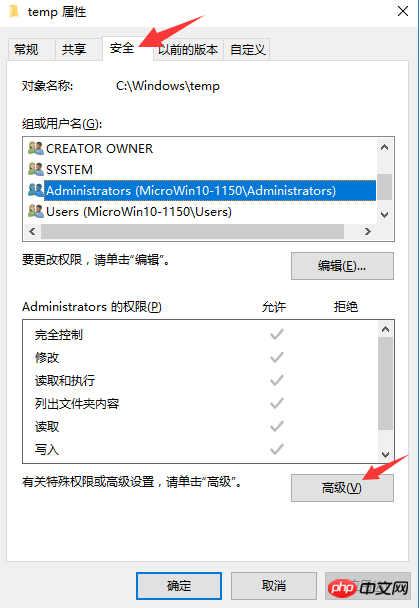
4)In the pop-up window, click "Add"
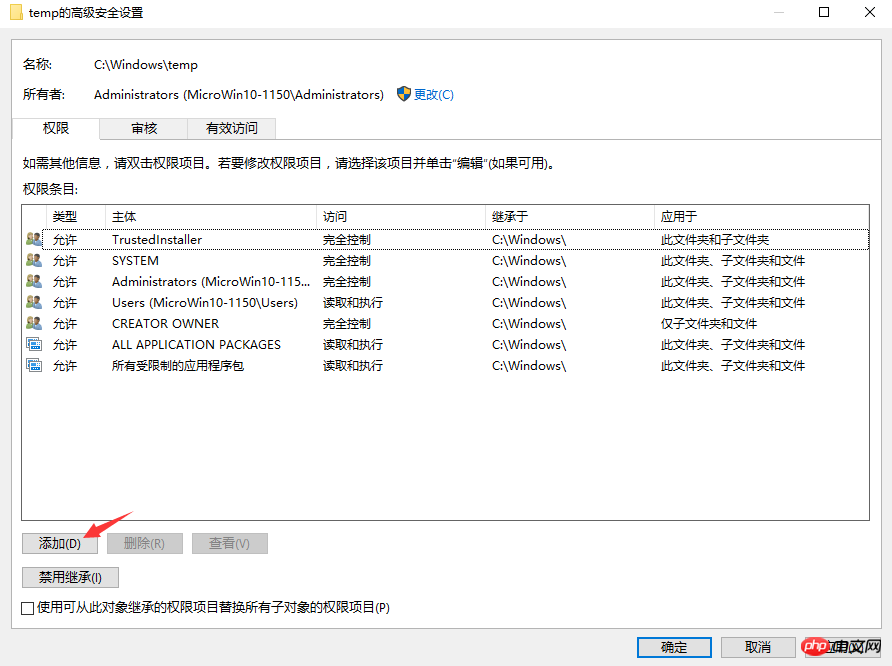
##5)In the pop-up window, click "Select Subject"

6)In the pop-up window, enter every and click "Check Name", you will find "Everyone"
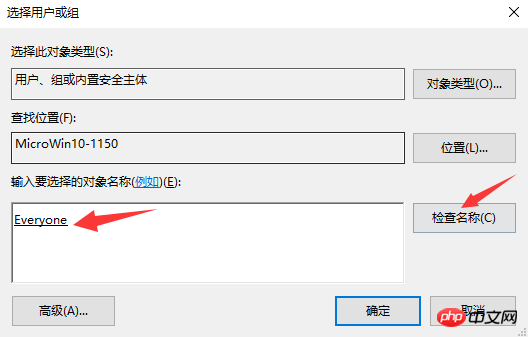

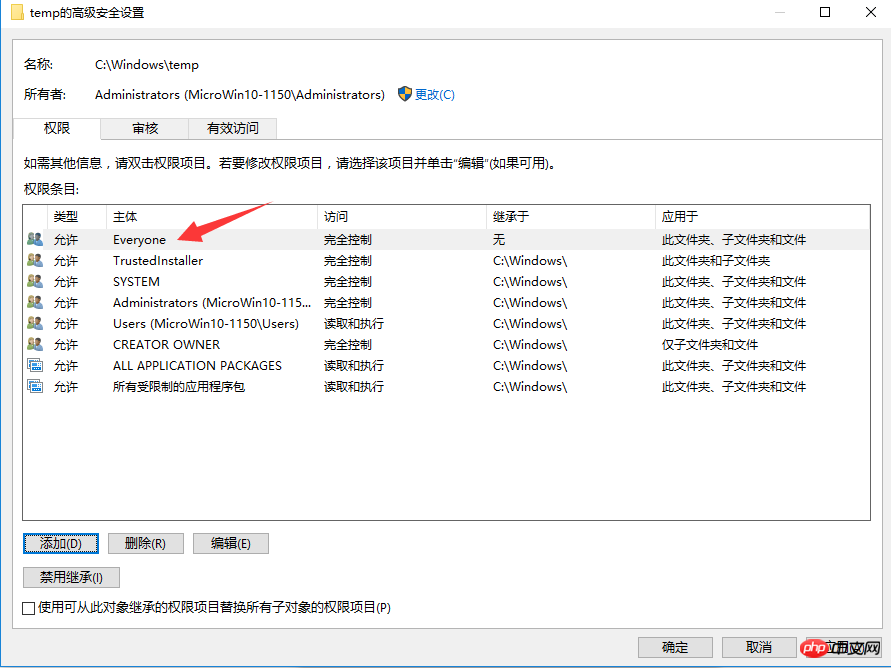 ##9) After clicking Apply , a security warning pops up, select "Yes"
##9) After clicking Apply , a security warning pops up, select "Yes"
 ##10) Then use MySQL Installation files, there will be no 2502 errors and 2503 errors
##10) Then use MySQL Installation files, there will be no 2502 errors and 2503 errors
Note: There is a pit here, even if you set up the installation If the path is elsewhere, MySQL will still be installed in the C:\Program Files path. Of course, it will have no impact on use
------- -------------------------------------------------- ---------------------------------------
2. Use the free installation of MySQL 5.5
1) Unzip the MySQL free installation file, such as Place it in D:\Java\mysql
2) Copy the my-small.ini file in the directory and name it my.ini
3) Modify the contents in my.ini
Find the [client] node, append: default-character-set = utf8
Find the [mysqld] node, append:
basedir = "D:\\Java\\MySQL"
datadir = "D: \\Java\\MySQL\\data"
##character_set_server = utf8
##collation-server = utf8_general_ci
Create a new [WinMySQLadmin] node and add: Server = D:\Java\mysql\bin\mysqld.exe
4) Append in the system variable name Path of the environment variable: D:\Java\mysql\bin;
5) In D :\Java\mysql\bin directory, execute the command (you can shift+right-click to find "Open command window here", or you can enter this directory in command line window mode): mysqld -install
This command is used to register the mysql service into the windows service. If "Service successfully installed." appears after the operation, it means that the service has been installed successfully
You can find the service through the control panel to see if there is a service named MySQL, or you can enter services.msc with win+r to directly enter the service window to see
For the corresponding uninstall service, you can execute the command: enter: mysqld -remove, prompting to uninstall the MySQL service
Similarly, the MySQL service can have a graphical interface Operate to start or close the service. You can also start the service through net start mysql in the command line window, and close the service with net stop mysql
##6) win+r input cmd to enter the command line window, enter: mysql -uroot -p and press Enter. At this time, mysql has no password by default. If "Welcome to the MySQL monitor." is displayed, it means successful login to MySQL7) Check the character set settings of the database, enter in the command line window: SHOW VARIABLES LIKE "character%"; If the displayed results are "character_set_server" and
"character_set_client" and other series of values They are all utf8, indicating that the character set is set successfully
8) Change the login password to sa, and enter in the command line window: set password for root@localhost = password( 'sa'); After logging out and logging in again, you need to enter: mysql -uroot -psa to log in successfully--------- -------------------------------------------------- -------------------------------------------------- -------------------------------------------------- --------
3. Use of MySQL client
After repeated comparisons, I personally recommend the SQLyog client. It is simple, easy to use, powerful, and has intelligent prompts
As a coder, you may not want to go back and forth with many tools Switch, myeclipse or idea have built-in database connection tools.
Here we recommend DBeaver Core, a plug-in for eclipse. The icon looks like a cute little squirrel.
Installation method: STS is used here, of course eclipse is the same
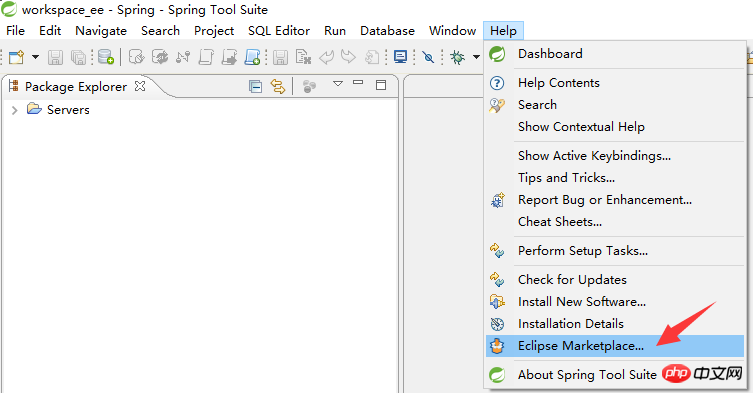
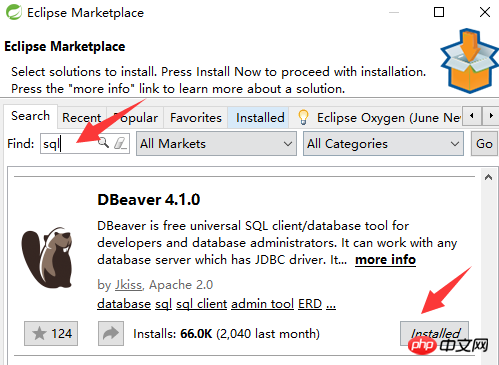
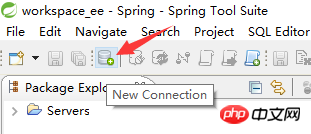
 ##Fill in the connection information
##Fill in the connection information
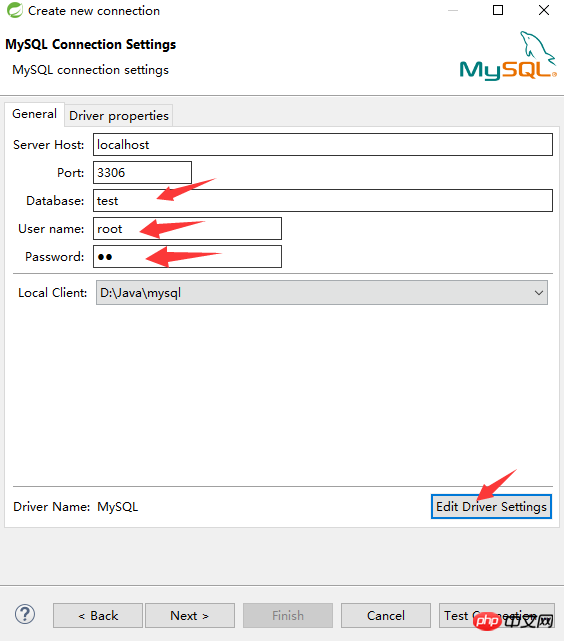 Choose to load the database driver jar package
Choose to load the database driver jar package
Test whether the connection is successful ## You can switch to the database operation view to perform operations ##There are some Smart prompts. It’s a pity that there are not enough smart prompts at present. For example, auto_increment doesn’t prompt, so just use it. ^_^ 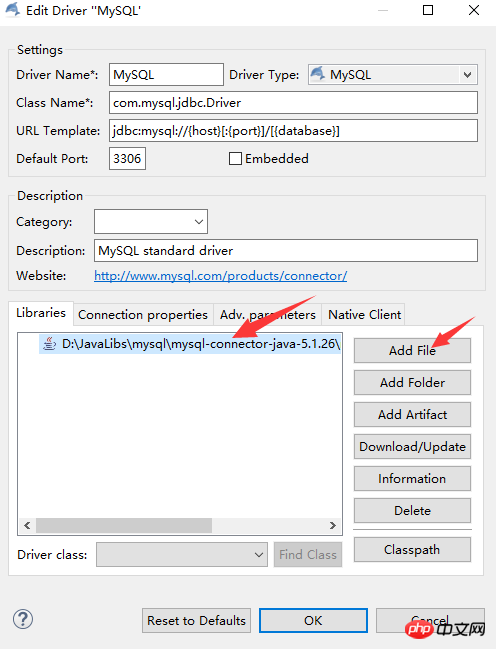
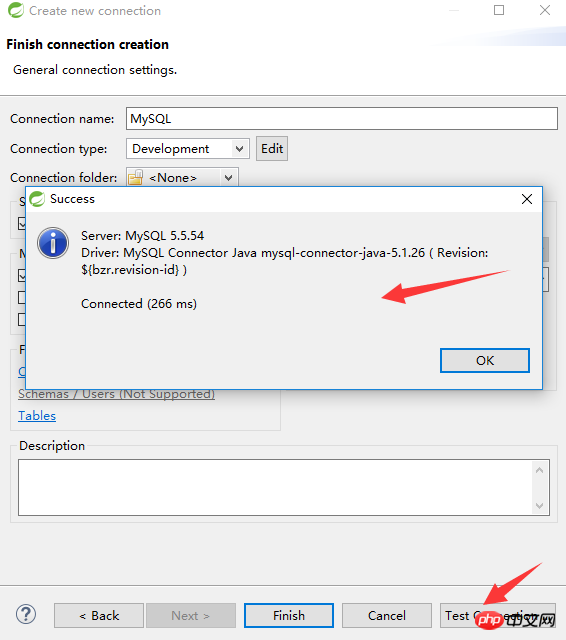
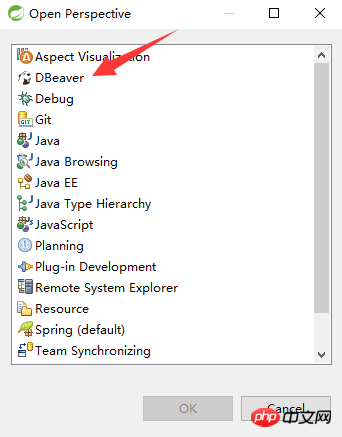

The above is the detailed content of Windows 10 + MySQL 5.5 installation and usage tutorial sharing. For more information, please follow other related articles on the PHP Chinese website!

Hot AI Tools

Undresser.AI Undress
AI-powered app for creating realistic nude photos

AI Clothes Remover
Online AI tool for removing clothes from photos.

Undress AI Tool
Undress images for free

Clothoff.io
AI clothes remover

Video Face Swap
Swap faces in any video effortlessly with our completely free AI face swap tool!

Hot Article

Hot Tools

Notepad++7.3.1
Easy-to-use and free code editor

SublimeText3 Chinese version
Chinese version, very easy to use

Zend Studio 13.0.1
Powerful PHP integrated development environment

Dreamweaver CS6
Visual web development tools

SublimeText3 Mac version
God-level code editing software (SublimeText3)

Hot Topics
 1673
1673
 14
14
 1428
1428
 52
52
 1333
1333
 25
25
 1278
1278
 29
29
 1257
1257
 24
24
 Explain the purpose of foreign keys in MySQL.
Apr 25, 2025 am 12:17 AM
Explain the purpose of foreign keys in MySQL.
Apr 25, 2025 am 12:17 AM
In MySQL, the function of foreign keys is to establish the relationship between tables and ensure the consistency and integrity of the data. Foreign keys maintain the effectiveness of data through reference integrity checks and cascading operations. Pay attention to performance optimization and avoid common errors when using them.
 Compare and contrast MySQL and MariaDB.
Apr 26, 2025 am 12:08 AM
Compare and contrast MySQL and MariaDB.
Apr 26, 2025 am 12:08 AM
The main difference between MySQL and MariaDB is performance, functionality and license: 1. MySQL is developed by Oracle, and MariaDB is its fork. 2. MariaDB may perform better in high load environments. 3.MariaDB provides more storage engines and functions. 4.MySQL adopts a dual license, and MariaDB is completely open source. The existing infrastructure, performance requirements, functional requirements and license costs should be taken into account when choosing.
 MySQL: The Database, phpMyAdmin: The Management Interface
Apr 29, 2025 am 12:44 AM
MySQL: The Database, phpMyAdmin: The Management Interface
Apr 29, 2025 am 12:44 AM
MySQL and phpMyAdmin can be effectively managed through the following steps: 1. Create and delete database: Just click in phpMyAdmin to complete. 2. Manage tables: You can create tables, modify structures, and add indexes. 3. Data operation: Supports inserting, updating, deleting data and executing SQL queries. 4. Import and export data: Supports SQL, CSV, XML and other formats. 5. Optimization and monitoring: Use the OPTIMIZETABLE command to optimize tables and use query analyzers and monitoring tools to solve performance problems.
 How to handle high DPI display in C?
Apr 28, 2025 pm 09:57 PM
How to handle high DPI display in C?
Apr 28, 2025 pm 09:57 PM
Handling high DPI display in C can be achieved through the following steps: 1) Understand DPI and scaling, use the operating system API to obtain DPI information and adjust the graphics output; 2) Handle cross-platform compatibility, use cross-platform graphics libraries such as SDL or Qt; 3) Perform performance optimization, improve performance through cache, hardware acceleration, and dynamic adjustment of the details level; 4) Solve common problems, such as blurred text and interface elements are too small, and solve by correctly applying DPI scaling.
 Steps to add and delete fields to MySQL tables
Apr 29, 2025 pm 04:15 PM
Steps to add and delete fields to MySQL tables
Apr 29, 2025 pm 04:15 PM
In MySQL, add fields using ALTERTABLEtable_nameADDCOLUMNnew_columnVARCHAR(255)AFTERexisting_column, delete fields using ALTERTABLEtable_nameDROPCOLUMNcolumn_to_drop. When adding fields, you need to specify a location to optimize query performance and data structure; before deleting fields, you need to confirm that the operation is irreversible; modifying table structure using online DDL, backup data, test environment, and low-load time periods is performance optimization and best practice.
 Detailed explanation of the installation steps of MySQL on macOS system
Apr 29, 2025 pm 03:36 PM
Detailed explanation of the installation steps of MySQL on macOS system
Apr 29, 2025 pm 03:36 PM
Installing MySQL on macOS can be achieved through the following steps: 1. Install Homebrew, using the command /bin/bash-c"$(curl-fsSLhttps://raw.githubusercontent.com/Homebrew/install/HEAD/install.sh)". 2. Update Homebrew and use brewupdate. 3. Install MySQL and use brewinstallmysql. 4. Start MySQL service and use brewservicesstartmysql. After installation, you can use mysql-u
 How to use MySQL functions for data processing and calculation
Apr 29, 2025 pm 04:21 PM
How to use MySQL functions for data processing and calculation
Apr 29, 2025 pm 04:21 PM
MySQL functions can be used for data processing and calculation. 1. Basic usage includes string processing, date calculation and mathematical operations. 2. Advanced usage involves combining multiple functions to implement complex operations. 3. Performance optimization requires avoiding the use of functions in the WHERE clause and using GROUPBY and temporary tables.
 How to uninstall MySQL and clean residual files
Apr 29, 2025 pm 04:03 PM
How to uninstall MySQL and clean residual files
Apr 29, 2025 pm 04:03 PM
To safely and thoroughly uninstall MySQL and clean all residual files, follow the following steps: 1. Stop MySQL service; 2. Uninstall MySQL packages; 3. Clean configuration files and data directories; 4. Verify that the uninstallation is thorough.




